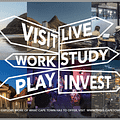LATEST NEWS
Airbnb hosts receive relief while awaiting further instruction from government
20 July 2020
Airbnb has paid R1 million in financial assistance to its hosts who have been hit hardest by Covid-19 while awaiting further instruction from government on re-opening.
The funds have been allocated to the graduates who participated in the Airbnb Africa Academy, an initiative created to encourage healthy tourism and entrepreneurship in rural and under-resourced communities. The fund was established as part of Airbnb’s “get behind the mask” campaign, an initiative by the company to donate R350 000 towards the production and distribution of masks to communities in need throughout South Africa.
“Developed as part of Airbnb’s $1 million commitment to inclusive tourism in Africa, the Airbnb Africa Academy has provided training for 220 people ‒ with 70% of participants being women. Recipients of the fund are hosts who previously received training through the academy, enabling them to become micro-entrepreneurs using the Airbnb platform,” says an Airbnb representative.
These hosts are mainly from disadvantaged communities around the country who have come to depend on Airbnb as a source of income. The funding provides much-needed relief in supporting their families during the national lockdown.
70-year-old Nombulelo Msizi, who runs a bed-and-breakfast in Langa Cape Town has received financial relief from the Airbnb Africa Academy fund. She has lost her source of income as she is not able to host guests during the lockdown.
Msizi said that it has been challenging not earning an income during the Covid-19 crisis as she also supports her granddaughters, aged nine and twelve, who live with her. She has been sewing and selling masks to provide for her family while waiting on further instruction from government to start hosting guests again.
Government has announced the resumption of essential local and international travel under strict regulations, failing to include Airbnb which has led many raised questions by Airbnb as to why it is excluded from President Ramaphosa’s plan of re-opening essential international and domestic travel.
Country Manager for Sub-Saharan Africa at Airbnb Velma Corcoran said, “The decision to exclude local hosts on Airbnb will have far-reaching consequences that will hurt many across SA, including a disproportionate impact on many families and small businesses who rely most on the additional income they earn from hosting.”
Corcoran added: “Half of the hosts across the world say they rely on this additional income to afford their homes, for example, and two-thirds of hosts in SA are women.”
With the funds Msizi receives from Airbnb, she plans on doing maintenance and repairs to her home to ensure post-lockdown success. She will also purchase personal protective equipment (PPE) along with all the necessary cleaning products to disinfect rooms for future guests.
In the true spirit of Ubuntu, Msizi added: “I’m looking at doing all those things to earn a living and at the same time assisting those who are struggling more than I do by donating masks to neighbours to prevent the spread of Covid-19 in my community.”
Airbnb says it has made a notable contribution to the South African economy, appealing to the presidency to reconsider its ruling and allow South African hosts to open their establishments and start earning a living, which essentially helps rebuild the economy.







